“Which English translation of The Master and Margarita should I read?”
So, you want to read Mikhail Bulgakov’s crowning work, a blackly comic Faustian Soviet satire. That’s great. Bulgakov really wanted his “sunset novel” to be read. In his lifetime, it wasn’t.
Bulgakov, whose work inevitably displeased the communists, was negatively labeled, and, as we might say today, ‘cancelled’. Government censors, not simply the opinion of the public or his publisher (which were also often against him), prevented the doctor-turned-writer from publishing his fiction, staging his plays, or leaving the country in search of a freer atmosphere in which to exercise his creativity.
Finally, he wrote a letter directly to Stalin insisting on his artistic need for freedom of the press and requesting to either be allowed to leave the country or be assigned a job in the theater so he could earn a living. Stalin actually phoned him to suggest a job at the Moscow Art Theater, and for the rest of his life that was where he worked. While occupied in writing adaptations of others’ works, he managed to write and even stage some of his own plays, with mixed success. His fiction was never published until after his death at age 48.
TLDR?
If you just want a quick-and-dirty recommendation on which translation to choose, jump to the conclusion.
The Master and Margarita: Translations in English
There are six English translations; one is out of print.
- 1967 – Mirra Ginsburg
- 1967 – Michael Glenny
- 1993 – Diana Burgin and Katherine Tiernan O’Connor
- 1997 – Richard Pevear and Larissa Volokhonsky
- 2006 – Michael Karpelson
- 2008 – Hugh Aplin
The Master and Margarita: Translation Comparison
Extracts have been included below so that you can see how the different translations sound.
The Master and Margarita: Other Resources
See below for other info and resources (list of other works, online resources, adaptations, guides, and biographical works).
What sort of a work is The Master and Margarita?
A humorous but deep, complex one.
Biographer Ellendea Proffer: “The Master and Margarita is dense with mystery, ambiguity and irony, a subversive work which fits no genre neatly.”
Soviet-born novelist Boris Fishman: “Margarita has too many achievements to list—for one thing, a plot scudding with action and suspense, not exactly a hallmark of Russian literature—but I am devoted especially to the way its openhearted, unironic celebration of art and love lives alongside such a dark-souled, too-knowing chronicle of the evil that nests inside the same human heart…. Few novels have incorporated fantastical elements into straight realism, the absurd into the sane, as hilariously and boldly as this one. (Long before there was Latin American magic realism, there was Soviet magic realism. It was a lot funnier.) But what other style could fit a world where heaven was now, indeed, hell?”
Translator Mirra Ginsburg: “The philosophical, political, and literary problems implicit in the novel have been the subject of innumerable studies, essays, and commentaries in many languages since its appearance, many of them reminiscent of the blind men and the riddle of the elephant. But then, in the presence of a work of genius what mortal can be blamed for blindness, or partial blindness?”
Biographer Ellendea Proffer: “Underneath the humor, fantasy, and deep lyrical sadness, is a philosophical structure. This structure is not meant to be perceived separately from what surrounds it, of course, but in order to reveal Bulgakov’s main feat of magic here a bit of analysis is in order—always keeping in mind that the is not a philosopher or a scholar, no matter how well he impersonates one, but an artist…. [M]any Russian Orthodox readers consider this novel blasphemous. But Bulgakov, like Tolstoy, Mandelstam and many other artists of his time, was more interested in Christ than in the religion created in his name…. Bulgakov’s entire novel is in a sense a polemic with the dominant force of his time, the belief in enlightened rationalism which in his country ended in a totalitarian structure.”
Translator Richard Pevear: “[T]he novel breathed an air of freedom, artistic and spiritual, which had become rare indeed. [It was] not only an anomaly but an impossibility, a sort of cosmic error, evidence of some hidden but fatal crack in the system of Soviet power. People kept asking, how could they have let it happen?”
Translator Richard Pevear: “Manuscripts don’t burn”, an important aphorism in the book, “seems to express an absolute trust in the triumph of poetry, imagination, the free word, over terror and oppression.” Bulgakov’s faith seems justified: The reason we have the novel today is that its author truly believed that someday, somehow people would read it. And people do.
What is The Master and Margarita about?
Global Histories: “Manuscripts Don’t Burn: The Master and Margarita as a Case Study of Samizdat in an Extra Gutenberg Culture” by Julia Boechat Machado
“The novel portrays a visit of the devil to Moscow in the 1930s, during Stalinist persecution of religion. The devil first appears in the Patriarch Ponds in Moscow, under the name Voland, talking to poet Bezdomni and head of literary bureaucracy Berlioz. He interrupts their discussion on atheism by stating that he knows what really happened between Jesus Christ and Pontius Pilatus, claiming to have witnessed these events. The two men consider him a madman, but they both soon realize that he has supernatural powers. Through these characters and a few others, the novel satirizes the bureaucratic organization of Soviet writers. One of the main events of the first part is the magic show organized by Voland in a variety theatre, satirizing the vanity, greed and gullibility of the Soviet public. Voland is accompanied in these efforts by his assistant and translator, Korovyev, a talking black cat called Behemoth, a fallen angel called Azazello, and a succubus called Hella. Other main characters are the Master, who has written and burnt a manuscript about Pontius Pilatus, the text of which we read as a novel inside the novel, and his lover Margarita.”
Was the author’s draft of The Master and Margarita complete?
I tried to answer this question and wound up with ~900 words on the subject, which I have posted elsewhere:
>> Was Bulgakov’s draft of The Master and Margarita complete?
The upshot is that Bulgakov finished writing it; he didn’t finish editing it. I think we have to assume that additional editing wouldn’t have changed the novel substantially.
Are all the English translations of The Master and Margarita complete?
It’s hard to say. There’s no single authoritative source text because the novel’s publishing history is complicated.
>> Are all the English translations of The Master and Margarita complete?
The upshot is that the 1967 Ginsburg translation was based on the version that was first published in Russia; the 1967 Glenny translation (and all the others after it) were based on longer texts that are considered to be “more complete”. See below for more on how much is missing from the Ginsburg and whether it matters.
Who was Mirra Ginsburg?
She was a Russian-American writer and translator. Among her translations are Bulgakov’s Fatal Eggs, Yevgeny Zamyatin’s We, and Dostoevsky’s Notes from Underground.
» Mirra Ginsburg (Jewish Women’s Archive)
» Mirra Ginsburg (Encyclopedia of Science Fiction)
The Rare Book and Manuscript Library at Columbia University in the City of New York has a collection of Mirra Ginsburg’s papers.
About the Ginsburg translation of The Master and Margarita
From the translator’s introduction: “The four principal strands in the novel’s astonishing web… are each distinct in style. Each breathes in its own way, each has its own rhythm and music (and I sought, as far as possible, to preserve this in translation).”
The Master and Margarita: A Critical Companion, edited by Laura D. Weeks, says, “[between Ginsburg and Glenny’s translations,] Ginsburg’s is the more accurate, as Glenny tends to gloss over difficult points and smooth out Bulgakov’s syntax considerably.”
Kirkus: “Review of The Master and Margarita”
“Mirra Ginsburg’s (Grove Press) version is pointedly grotesque: she delights in the sharp, spinning, impressionistic phrase. Her Bulgakov reminds one of the virtuoso effects encountered in Zamyatin and Babel, as well as the early Pasternak’s bizarre tale of Heine in Italy.”
Professor Kevin Moss: Resources for The Master and Margarita
Moss calls Ginsburg’s translation “lively and entertaining” but incomplete.
The Slavic and East European Journal: “Retranslations: Do they get us back to the source text? Six English translations of M. Bulgakov’s The Master and Margarita” by Natalia Kaloh Vid
“While tendencies toward foreignization are undoubtedly evident in Burgin and O’Connor’s, Pevear and Volokhonsky’s and Aplin’s translations in the seventeen examples of Sovietisms discussed in the analysis, Ginsburg’s translation, which was the first, is quite source-oriented, showing less naturalization and domestication than theirs.”
The Bookhound: “Lost in [a] Translation”
“Mirra was also a writer of children’s stories. And this comes out in her translation of the novel. She takes the magical side of it along with the slapstick to a new level. And yet alongside this she brings out the humanity of the book. If Ginsburg’s translation is in many ways a lighter read (no editorial commentary), it’s also a much more deeply felt read, as it was her translation that was the one which reduced me to tears. Oddly although this is the most magical translation, it is also the most human, and, I suspect, closest to Bulgakov’s original intentions.”
What’s missing from the Ginsburg translation of The Master and Margarita?
I have seen a couple of people vaguely claim the original Ginsburg translation, which was made based on a shortened source text, was subsequently updated. The current edition says the copyright for the Ginsburg translation was “renewed” in 1995, but I have not been able to find any definitive evidence that any additions were made to the Ginsburg translation to supply what was arguably “missing” from the 1967 version. If the current edition were more complete than the original, I imagine the publisher would say so somewhere on the cover or in the first few pages of the newer edition. I conclude that the Ginsburg translation remains incomplete.
For more on the history of the early drafts and published versions, see my post about The Master and Margarita at spjg.com.
The Russian Review: “Review of ‘The Master and Margarita’ by Mikhail Bulgakov” by Gleb Struve:
“Moskva, allegedly, made [the cuts] for reasons of space, but made no mention of them whatever. They amounted in all, to 23,000 words, spread mostly over Part Two of the novel. There are many cuts of between 10 and 100 words, but there are also seventeen censored-out passages of no less than 200 words, and two quite big chunks, one of 1,750 words (at the beginning of the chapter describing the burning of the Griboedov House) and one of 3,225 words (a very amusing satirical passage, presented as a dream of Nikanor Ivanovich). In [the part of] the novel about Pilate there are fewer cuts (a total of about 1,600 words, the biggest single passage amounting to ca. 700 words), but those cuts are quite important…. While it is difficult to discern a clear pattern in those cuts, there is no justification for Mirra Ginsburg’s opinion that they may have been dictated by considerations of literary quality.”
The New York Times: “The Devil in Moscow, Plus Gremlins” by Eliot Fremont-Smith:
“Harper & Row supplied this column with the master proofs, so I was able to see exactly what these deletions were. None is crucial to the novel, though they were clearly the result of continuing ideological, political and puritanical censorship, or nervousness, or going through the motions. Most of the [c]uts have to do with the police, civil liberties and sensual abandon; what is fascinating is that the ridicule and display of same are endemic in the total work, so that the knit-picking censorship that was done really changes nothing. Still, the complete novel, as Bulgakov wrote it and as it appears in the Harper & Row edition, is preferable to a version we know was tampered with for at least bureaucratic reasons.”
Global Histories: “Manuscripts Don’t Burn: The Master and Margarita as a Case Study of Samizdat in an Extra Gutenberg Culture” by Julia Boechat Machado
“The biggest cuts were in references to the housing crisis, the descriptions of Griboedov House [a parody of a real Soviet literary organization] and Margarita’s nudity while flying around Moscow.”
Translation Review: “Three Translations of The Master and Margarita” by Rachel May
“[W]ord counts do not sum up the value of a translation, and the three English versions [Ginsburg, Glenny, Burgin & O’Connor] have stylistic merits and flaws that outweigh completeness as a measure of their value. In spite of its abridgements, Ginsburg’s translation outstrips the other two for literary flair…. [It is] the best approximation of the lively chaos of Bulgakov’s original. Mirra Ginsburg is a prolific translator with a particular affinity for Russian humor…. She translates Bulgakov with a light hand, refraining from fleshing out his telegraphic dialogue or ‘explaining’ his paradoxical humor. Occasionally her English seems forced… but at least as often her large vocabulary provides wonderfully creative and apt phrasings.”
Extract from the Ginsburg translation of The Master and Margarita
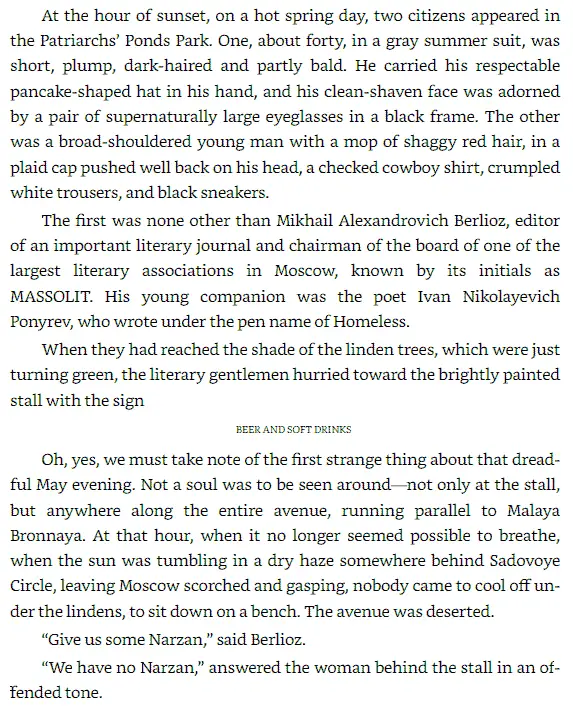
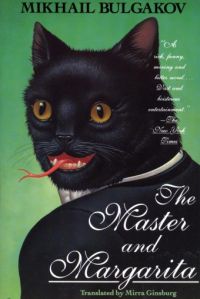
Get the Grove Press Ginsburg translation of The Master and Margarita
Available as a paperback (ISBN 9780802130112, 416 pages).
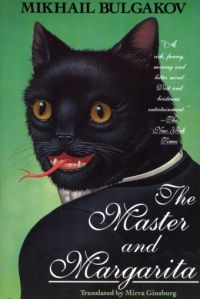
Get the Grove Press Ginsburg translation of The Master and Margarita
Available as an ebook (ISBN 9780802190512).
Who was Michael Glenny?
He was a British academic and translator. Among his translations are Nabokov’s debut novel Mary and Bulgakov’s White Guard.
About the Glenny translation of The Master and Margarita
Meta: “Translations of Sovietisms: A Comparative Case Study of English Translations of Bulgakov’s The Master and Margarita” by Natalia Kaloh Vid
“Glenny’s version minimizes the foreignness of Bulgakov’s narrative to a greater extent than other translations, offering fluent, undisturbed reading for English-speaking audience, albeit while almost completely erasing the foreign ‘spirit.’… The denotative meaning is usually transferred well in all translations, though Glenny’s version demonstrates more contextual deviances from the original than the other translations do.”
Listserv.linguist.org: “The Master and Margarita Question” post by naiman at Berkeley
“Several years ago, I taught a graduate seminar on Master i Margarita. For one of the final meetings, I gave the seminar participants (seven or 8 Berkeley graduate students) unidentified passages from five of the translations (Glenny, Ginsburg, Burgin & O’Connor, Pevear & Volokhonsky, Karpelson) and asked them to rank them, considering both readability and fidelity. P&V came out on top, with B& O’C second…. Glenny is very readable and for a generation of undergrads in survey courses, he may have provided the hook that led to a major, but as the grad students quickly noticed, he skips things he doesn’t understand; as Simon Karlinsky noted in a NYTimes review, at one point he turns a bath into a female character.“
The Slavic and East European Journal: “Retranslations: Do they get us back to the source text? Six English translations of M. Bulgakov’s The Master and Margarita” by Natalia Kaloh Vid
“Sovietisms are often domesticated in Glenny’s translation and the result is a sometimes inaccurate and non-informative text. Though English readers are told the same story as in the other translations, they sometimes do not learn about the specifics of Soviet culture in his work. My limited evidence suggests that Glenny assumed that his readers were interested in the story but not the specifics of Soviet discourse, and that he decided to avoid ‘overloading’ his translation with footnotes and explanations.”
The Oxford Guide to Literature in English Translation edited by Peter France on page 608 says:
The most widely available version is the 1967 translation by Michael Glenny, which has “stood the test of time better than Mirra Ginsburg’s of the same year, not least because Ginsburg was using the expurgated Russian text… whereas Glenny was fortunate enough to be given a more complete text by Bulgakov’s widow. Even so, subsequent Russian reprintings indicate a slightly fuller text still…. Glenny’s translations are never less than highly readable. He has a great feel for language and is not afraid to take idiomatic risks. But he is prone to the occasional blunder…. But no translator is perfect, and Glenny deserves the highest praise for his efforts to bring Russian literature to the British public.”
The Master and Margarita: A Critical Companion, edited by Laura D. Weeks, says, “[between Ginsburg and Glenny’s translations,] Ginsburg’s is the more accurate, as Glenny tends to gloss over difficult points and smooth out Bulgakov’s syntax considerably.”
In A Reader’s Companion to Mikhail Bulgakov’s The Master and Margarita, J.A.E. Curtis says:
“[Glenny] was one of the most respected British translators of Russian literature, with an exceptionally long and distinguished list of publications of canonical twentieth-century Russian texts in English. His version has tremendous verve. But the haste with which the task had to be completed does unfortunately show, and although it remains one of the most readable versions available in English, it would be good if a few really unfortunate slips and omissions could be remedied.”
Kirkus: “Review of The Master and Margarita”
“[Glenny] almost suggests Tolstoy. His (Harper & Row) version is simpler, softer, and more humane [than Ginsburg’s]. The Bulgakov fantasy is less striking here, but less strident, too.”
Professor Kevin Moss: Resources for The Master and Margarita
Like the Ginsburg translation, because of the haste to publish, it lacks “much critical depth”.
Extract from the Glenny translation of The Master and Margarita
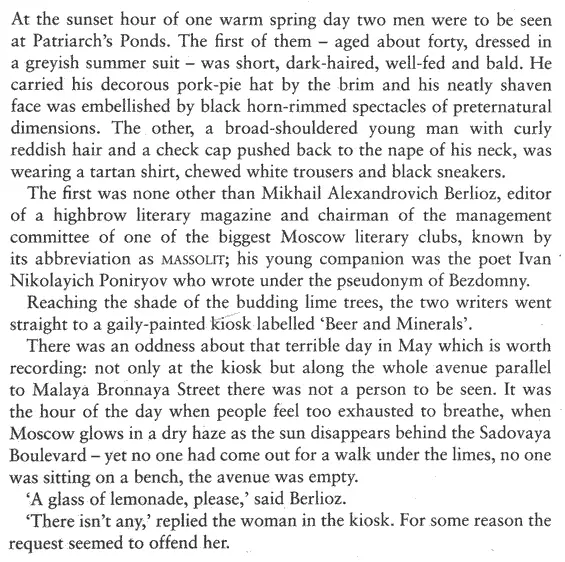
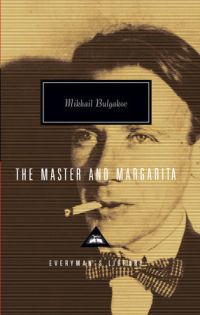
Get the Everyman's Library Glenny translation of The Master and Margarita
Introduction by Simon Franklin.
Available as a hardcover (ISBN 9780679410461, 488 pages).
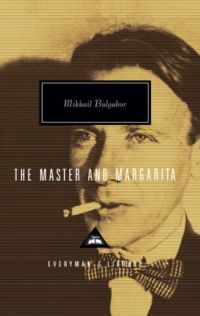
Get the Everyman's Library Glenny translation of The Master and Margarita
Introduction by Simon Franklin.
Available as a hardcover (ISBN 9781857150667, 448 pages).

Get the Vintage Classic Russians Glenny translation of The Master and Margarita
"The designs for the Vintage Classics Russian Series have been created by Vintage Creative Director Suzanne Dean, assembled from a variety o fauthentic Russian textile designs from the nineteenth century and Soviet era. The textiles come from the colection of Susan Meller, author, and founder of The Design Library, New York."
Available as a paperback (ISBN 9781784871932, 384 pages).
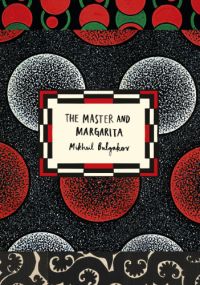
Get the Vintage Classic Russians Glenny translation of The Master and Margarita
"The designs for the Vintage Classics Russian Series have been created by Vintage Creative Director Suzanne Dean, assembled from a variety o fauthentic Russian textile designs from the nineteenth century and Soviet era. The textiles come from the colection of Susan Meller, author, and founder of The Design Library, New York."
Available as an ebook (ISBN 9781409079910).
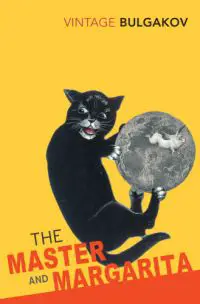
Get the Vintage Classics Glenny translation of The Master and Margarita
Introduction by Will Self.
Available as a paperback (ISBN 9780099540946, 464 pages).
Who are Diana Lewis Burgin and Katherine Tiernan O’Connor?
Diana Burgin is Professor of Russian at the University of Massachusetts, Boston. She holds a BA in Russian from Swarthmore and an MA and PhD in Slavic Languages and Literatures from Harvard.
Katherine Tiernan O’Connor is Professor Emeritus of Russian at Boston University. Her studies focus on 19th and 20th century Russian prose and poetry, literary translation, and general humanities.
Ellendea Proffer Teasley (who wrote the notes and afterword) is an American writer and translator, and an expert on Bulgakov. She is the author of Mikhail Bulgakov: Life and Work (1984). In 1971, with her husband, she founded Ardis Publishers, a publishing house focused on Russian works in English and Russian.
About the Burgin/O’Connor translation of The Master and Margarita
This is the first English translation to include explanatory notes. It benefits from three decades of Bulgakov scholarship and from being based on source texts that became available in 1973 and 1990 rather than just the versions available to the first two translators in 1967. Vintage can thus state that this is “The first complete, annotated English translation of Mikhail Bulgakov’s comic masterpiece.”
The Master and Margarita: A Critical Companion, edited by Laura D. Weeks, says, “This translation can be recommended for a number of reasons. Based on a version of the novel ‘compiled’ from two current editions… it faithfully reproduces Bulgakov’s syntax, while at the same time devoting attention to key leitmotivs and repeated phrases crucial to the novel’s structure. The translators have also devoted a great deal of effort to clarifying various details of clothing, food, and architecture, which feature so prominently in Bulgakov’s universe.”
From the Translators’ Note: “All aspects of the work on this translation were done equally by the two of us, and the order of our names is purely alphabetical…. [O]ur translation aims to be as literal a rendering of the original Russian as possible…. We have made every effort to retain the rhythm, syntactic structure, and verbal texture of Bulgakov’s prose. We have often eschewed synonyms in favor of repeating the words that Bulgakov repeats, and we have tried, as far as possible without sacrificing clarity, not to break up Bulgakov’s long sentences and to adhere to his word order. In sum, we strove for an accurate, readable American English translation of The Master and Margarita that would convey the specifically Bulgakovian flavor of the original Russian text.”
Meta: “Translations of Sovietisms: A Comparative Case Study of English Translations of Bulgakov’s The Master and Margarita” by Natalia Kaloh Vid
“Apparently, Burgin and O’ Connor considered their target readers’ knowledge about the Soviet culture insufficient, as, out of two hundred and nine extensive comments, eighteen Sovietisms are explained…. Apparently, Burgin and O’Connor’s translation, the first to be equipped with comments, influenced later translators, who considered this strategy successful.”
Professor Kevin Moss: Resources for The Master and Margarita
“Burgin and O’Connor’s translation is by far the best [of the four older translations—Ginsburg, Glenny, Burgin/O’Connor and Pevear/Volokhonsky], if one is interested in studying what Bulgakov really wrote. They have the advantage of some 30 years of Bulgakov scholarship, which they take into consideration in their translation, which gets details right. The notes, provided by the Bulgakov scholar Ellendea Proffer, are also invaluable.”
The unabridged Recorded Books CD audiobook of The Master and Margarita was made from the Burgin & O’Connor translation.
Extract from the Burgin/O’Connor translation of The Master and Margarita
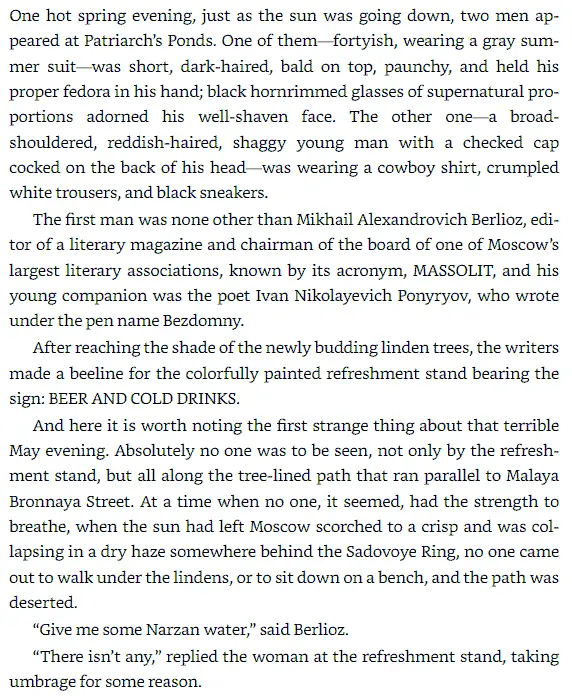
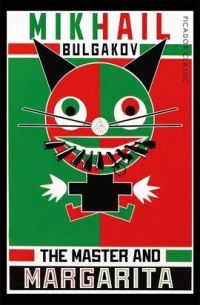
Get the Picador Classic Burgin & O'Connor translation of The Master and Margarita
With an introduction by the writer and critic Viv Groskop.
Available as a paperback (ISBN 9781509823291, 384 pages).
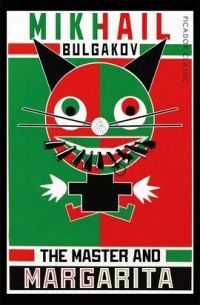
Get the Picador Classic Burgin & O'Connor translation of The Master and Margarita
With an introduction by the writer and critic Viv Groskop.
Available as an ebook (ISBN 9781509823307).

Get the Macmillan Collector's Library Burgin & O'Connor translation of The Master and Margarita
Available as a hardcover (ISBN 9781529012118, 560 pages).
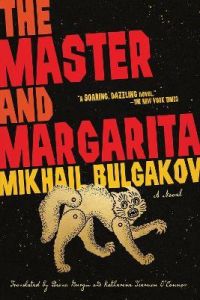
Get the Abrams Burgin & O'Connor translation of The Master and Margarita
Notes and afterword by Ellendea Proffer.
Available as a paperback (ISBN 9781419756504, 432 pages).
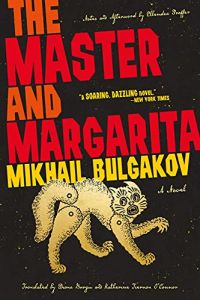
Get the Abrams Burgin & O'Connor translation of The Master and Margarita
Notes and afterword by Ellendea Proffer.
Available as an ebook.
Who are Richard Pevear and Larissa Volokhonsky?
They are superstar translators, a Russian-American husband-and-wife team, who have tackled an extensive list of Russian works, including Anna Karenina, War and Peace, Crime and Punishment, The Idiot, Notes from Underground, and The Brothers Karamazov. There’s a fierce debate in the literary world about whether their translations are actually terrible or fantastic—they’re not to everyone’s taste—but the pair have undoubtedly succeeded both commercially and artistically, becoming both popular and respected.
About the Pevear and Volokhonsky translation of The Master and Margarita
From Boris Fishman’s foreword: “Until now, The Master and Margarita has been something of a cult classic…. [T]hanks to this luminous translation, newly revised for this edition and distinguished not only the stylistic elegance that has become a hallmark of Pevear and Volokhonsky translations but also a supreme ear for the sound and meaning of Soviet life, there has never been better help along the way. In 2016, it’s time for The Master and Margarita to rise to its rightful place in the canon of great world literature.”
Meta: “Translations of Sovietisms: A Comparative Case Study of English Translations of Bulgakov’s The Master and Margarita” by Natalia Kaloh Vid
“Apparently, Burgin and O’ Connor considered their target readers’ knowledge about the Soviet culture insufficient…. Pevear and Volokhonsky’s translation is even more “scholarly” and in a way patronizing. It includes one hundred and seventy-five comments, with twenty-seven Sovietisms explained.”
Listserv.linguist.org: “The Master and Margarita Question” post by naiman at Berkeley
“Several years ago, I taught a graduate seminar on Master i Margarita. For one of the final meetings, I gave the seminar participants (seven or 8 Berkeley graduate students) unidentified passages from five of the translations (Glenny, Ginsburg, Burgin & O’Connor, Pevear & Volokhonsky, Karpelson) and asked them to rank them, considering both readability and fidelity. P&V came out on top.“
Professor Kevin Moss: Resources for The Master and Margarita
Moss says the P&V translation is “almost as good as Burgin & O’Connor” and has “useful notes”.
The Bookhound: “Lost in [a] Translation”
“The cover [the Penguin Classics one with a silhouette of a cat snatching the head off a man] still remains one of my favourites of all the Master and Margarita editions I’ve seen. If the language is a little measured, there are great editorial notes with this edition providing extremely helpful information on the background to the novel, and its amazing bursting forth onto the streets of the USSR. Pevear and Volokhonsky are excellent too at bringing out the humour of the novel, along with the darker political background that makes it such a darkly funny book.”
Extract from the Pevear & Volokhonsky translation of The Master and Margarita
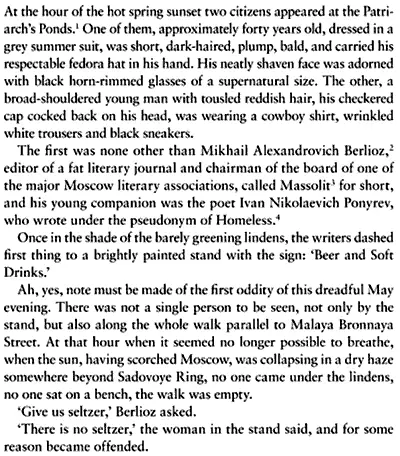
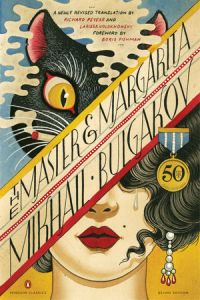
Get the Penguin Classics Deluxe Pevear & Volokhonsky translation of The Master and Margarita
50th-Anniversary Edition. Newly revised. Illustrated by Christopher Conn Askew, foreword by Boris Fishman, introduction by Richard Pevear, endnotes by Pevear and Volokhonsky, includes suggestions for further reading.
Available as a paperback (ISBN 9780143108276, 448 pages).
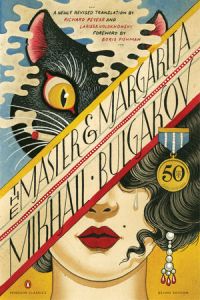
Get the Penguin Classics Deluxe Pevear & Volokhonsky translation of The Master and Margarita
50th-Anniversary Edition. Newly revised. Illustrated by Christopher Conn Askew, foreword by Boris Fishman, introduction by Richard Pevear, endnotes by Pevear and Volokhonsky, includes suggestions for further reading.
Available as an ebook (ISBN 9781524704124).
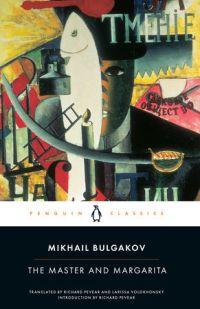
Get the Penguin Classics Pevear & Volokhonsky translation of The Master and Margarita
Introduction by Richard Pevear, endnotes by Pevear and Volokhonsky.
Available as a paperback (ISBN 9780141180144, 448 pages).

Get the Penguin Classics Pevear & Volokhonsky translation of The Master and Margarita
Introduction by Richard Pevear.
Available as a paperback (ISBN 9780140455465, 432 pages).
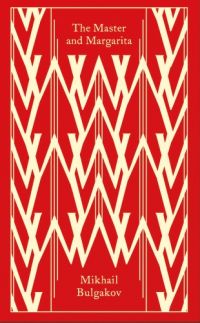
Get the Penguin Clothbound Classics Pevear & Volokhonsky translation of The Master and Margarita
Coming in March 2023! Introduction by Richard Pevear.
Available as a hardcover (ISBN 9780241552674, 432 pages).
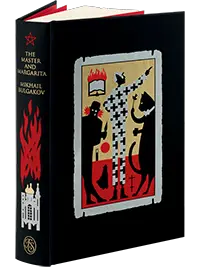
Get the Folio Society Pevear & Volokhonsky translation of The Master and Margarita
Illustrated by Peter Suart. Introduction by Orlando Figes.
Available as a hardcover with slipcase.
Who is Michael Karpelson?
There doesn’t seem to be anything about him online. He apparently self-published his translation of The Master and Margarita with Lulu. The subsequent Wordsworth Classics edition is out of print. He also translated Bulgakov’s Fatal Eggs.
About the Karpelson translation of The Master and Margarita
Wordsworth Classics: “This new translation faithfully reproduces the style and idiomatic flow of the text, so that English-speaking audiences may fully enjoy Bulgakov’s masterpiece.”
Meta: “Translations of Sovietisms: A Comparative Case Study of English Translations of Bulgakov’s The Master and Margarita” by Natalia Kaloh Vid
“[T]ranslations by Karpelson, and, particularly, Aplin, surprisingly, show even more tendencies to foreignizing principles.”
Meta: “Translations of Sovietisms: A Comparative Case Study of English Translations of Bulgakov’s The Master and Margarita” by Natalia Kaloh Vid
“To avoid criticism on the incompleteness of the comments, Karpelson states that, ‘These notes provide background for some of the characters, locations, and events in The Master and Margarita. It is beyond the scope of [the Karpelson translation] to explain all of Bulgakov’s numerous references and sources, particularly those that can be found easily in an encyclopedia.’ “
Listserv.linguist.org: “The Master and Margarita Question” post by naiman at Berkeley
“Several years ago, I taught a graduate seminar on Master i Margarita. For one of the final meetings, I gave the seminar participants (seven or 8 Berkeley graduate students) unidentified passages from five of the translations (Glenny, Ginsburg, Burgin & O’Connor, Pevear & Volokhonsky, Karpelson) and asked them to rank them, considering both readability and fidelity. P&V came out on top, with B& O’C second…. Karpelson was erratic, once or twice the best, but with some disqualifying mistakes.”
The unabridged Naxos audiobook of The Master and Margarita was made from the Karpelson translation.
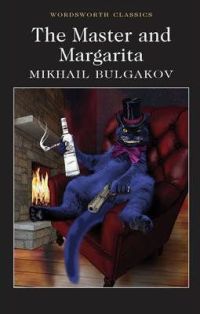
Get the Wordsworth Classics Karpelson translation of The Master and Margarita
Contains notes by the translator. This edition seems to be out of print, but you may be able to find a second-hand copy using the links.
Available as a paperback (ISBN 9781840226577, 432 pages).
Who is Hugh Aplin?
Alma Books says: “Hugh Aplin worked at the Universities of Leeds and St Andrews before taking up his current post as Head of Russian at Westminster School, London. His previous translations are too many to mention, but include books by Chekhov, Gogol, Dostoevsky, Turgenev, Zamyatin, Bulgakov, Tolstoy, Bunin and, more recently, Gorky.”
About the Aplin translation of The Master and Margarita
Listserv.linguist.org: “The Master and Margarita Question” post by Kevin O’Brien at Chapman University
“My favorite of the translations of ‘Master and Margarita’ available in English is the Hugh Aplin version published by OneWorld Classics in Britain. Though the translation contains a few Anglicisms (like ‘ginger’ for ‘red-haired’) which may be less familiar to American readers, it is the only one I have found that matches the rhythm of Bulgakov’s prose. I’ve read all the others, apart from Karpelson. I find the other translations completely lacking in this aspect, something quite palpable in the Russian. I don’t know why this version has not received greater acclaim on this side of the Atlantic. It’s an inspired and faithful rendering of the original, with a real ‘ear’ for Bulgakov’s pulse.”
The Slavic and East European Journal: “Retranslations: Do they get us back to the source text? Six English translations of M. Bulgakov’s The Master and Margarita” by Natalia Kaloh Vid
The strategy Aplin uses for translating Sovietisms is to capitalize the English term to indicate that it has a special layer of foreign meaning. “Aplin’s translation shows a clear foreignizing tendency.”
The Bookhound: “Lost in [a] Translation”
“As a read it moves well, and there are some helpful notes at the end. I was very grateful though that I had read Pevear and Volokhonsky first, as there was the odd moment where if I had been a Master and Margarita novice, I would have wondered what was going on…. Aplin did a fine job with the Biblical storyline, which was more clear and moving in his translation than in any other.”
The Guardian: “Russian Literature webchat: Mikhail Bulgakov” Sam Jordison and Hugh Aplin
Aplin says: “Judgements on the relative merits of translators and specific translations are very subjective. The translations themselves are, of course, subjective too – each translator has his or her own understanding of a text, which is why even the simplest little bit of Russian will almost inevitably be rendered differently by everyone who translates it (strange, but true). There are, however, good and bad translations, I think, in that a bad translator can simply misunderstand the source text and thus produce an incorrect version in the target language. The occasional error of this sort is, I would suggest, acceptable (and perhaps even unavoidable), but if the errors are persistent and significant, the resultant translation must surely be considered bad. I expect that is probably not very helpful; especially as many reviewers, whose recommendations might be thought helpful, are actually unable to judge the accuracy of what they read and therefore just praise what they like, which may, according to my definition, be bad! Where Russian translations are concerned, modern translations are often to be preferred, as there has been greater contact between the Anglophone and Russophone worlds in recent decades, so translators are perhaps more likely to be reliable than in the past (and the resources of the Internet are a tremendous boon for contemporary translators)….I don’t really like getting involved in discussion of other translators’ works, because we all read and therefore rewrite the original differently; and my reading is obviously going to be the one I personally prefer! I know the Burgin/O’Connor version is highly rated, and I would advise against the Glenny: it served its purpose well in introducing readers to Bulgakov, but it has far too many howlers for comfort, many of which distort the work to a degree that makes some passages incomprehensible…. Another thing to bear in mind is whether the translator into English is British or American – it can make quite a difference!”
Extract from the Aplin translation of The Master and Margarita
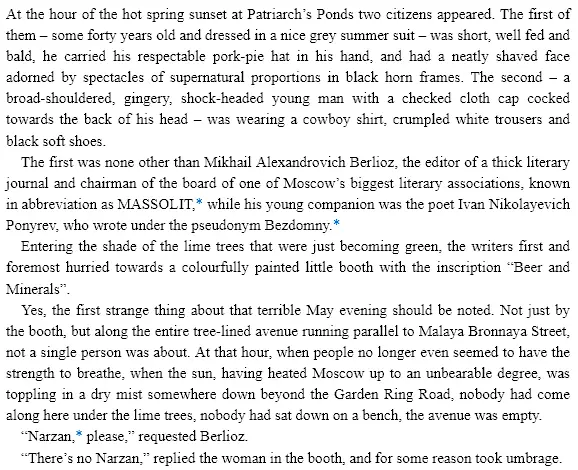
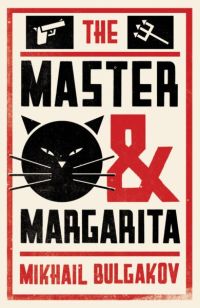
Get the Alma Classics Aplin translation of The Master and Margarita
Ten-Year Anniversary Edition. Newly revised and updated. Contains a note on the text, endnotes, extra material on Bulkgakov's life and works, a select bibliography, and letter and diary extracts.
Available as a paperback (ISBN 9781847497826, 448 pages).

Get the Alma Classics Aplin translation of The Master and Margarita
Bundled together with other works by Bulgakov.
Available as a set of 8 books (ISBN 9781847497857).

Get the RosettaBooks Aplin translation of The Master and Margarita
Ten-Year Anniversary Edition. Newly revised and updated. Contains a note on the text, endnotes, extra material on Bulkgakov's life and works, a select bibliography, and letter and diary extracts.
Available as an epub ebook (ISBN 9780795348396).

Get the RosettaBooks Aplin translation of The Master and Margarita
Ten-Year Anniversary Edition. Newly revised and updated. Contains a note on the text, endnotes, extra material on Bulkgakov's life and works, a select bibliography, and letter and diary extracts.
Available as a Kindle ebook (ISBN 9780795348402).
Other Fiction by Bulgakov
The Master and Margarita is the best-known of Bulgakov’s novels. He was also a playwright and the author of the following works of fiction:
- The White Guard
- A Young Doctor’s Notebook
- The Fatal Eggs
- Black Snow
- A Dog’s Heart
Online Resources about Bulgakov
https://cr.middlebury.edu/public/russian/Bulgakov/public_html/intro.html
Master and Margarita resources posted by Professor Kevin Moss at Middlebury College
https://www.masterandmargarita.eu/en/index.html
an extensive Master and Margarita fan page by Jan Vanhellemont
https://tamizdatproject.org/en/author/mikhail-bulgakov
“The Tamizdat Project is a virtual environment that traces the history of circulation, first publications and reception of contraband Russian literature outside the USSR.”
https://www.loc.gov/rr/european/bulgaklc.html
an extensive bibliography of works by and about Bulgakov
https://bravo-begemot.blogspot.com/2010/06/chapter-1-never-talk-to-strangers.html
“This is a totally ad hoc blog with the sole mission of creating a free, online, HTML-ized, fully-annotated, chapter-by-chapter electronic version of Mikhail Bulgakov’s classic novel The Master and Margarita.”
https://lithub.com/75-covers-of-the-master-and-margarita-ranked-with-comment/
a post displaying covers of the novel from around the world, ranked and with sarcastic comments
https://era.library.ualberta.ca/items/9d41381b-f93c-4fc6-9e38-db4b13129a84
Rediscovering “The Master and Margarita”: from Creation to Adaptation by Olga Lescheva (University of Alberta master’s thesis, 2013) tells the history of the novel, compares the first chapter of the first four translations (Ginsburg, Glenny, Burgin/O’Connor, Pevear/Volokhonksy), and describes the 2005 television adaptation.
Adaptations, Guides, and Biographical Works
See below.

Get The Master and Margarita by Edward Kemp
A theatrical adaptation.
Available as a paperback (ISBN 9781840024487, 122 pages).
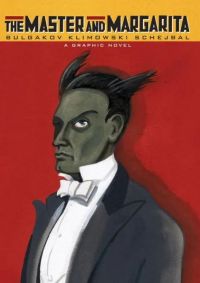
Get The Master and Margarita: A Graphic Novel by Andrzj Klimowski and Danusia Schejbal
Graphic novel adaptation. Eye Classics. Ebook also available.
Available as a paperback (ISBN 9780955816925, 160 pages).
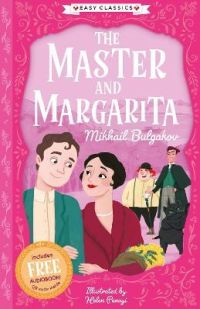
Get The Master and Margarita (Easy Classics) by Gemma Barder
Children's adaptation (7-11 years). "An adapted and illustrated edition of the Russian classic, at an easy-to-read level for all ages!" Ebook also available.
Available as a paperback (ISBN 9781782267867, 120 pages).
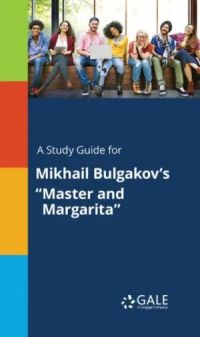
Get A Study Guide for Mikhail Bulgakov's "Master and Margarita" by Gale Cengage Learning
Ebook also available.
Available as a paperback (ISBN 9781375384100, 48 pages).
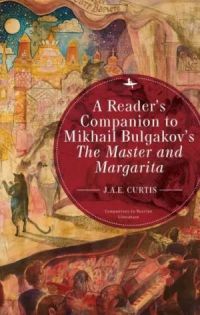
Get A Reader's Companion to Mikhail Bulgakov's The Master and Margarita by JAE Curtis
Ebook also available.
Available as a paperback (ISBN 9781644690789, 194 pages).
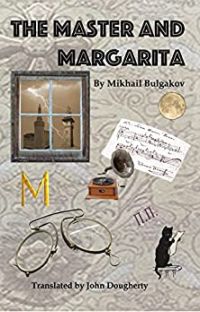
Get The Master and Margarita by Translator John Dougherty
This is a self-published translation by the author of the Russian Tumble blog. Copyright 2016. Has an interesting introduction that talks about Russian naming conventions and about some of the character names.
Available as an ebook.
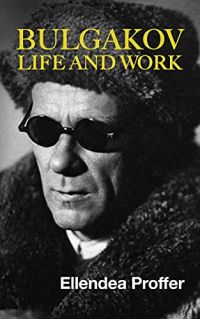
Get Mikhail Bulgakov: Life and Work by Ellendea Proffer
Paperbacks and hardcovers are out of print.
Available as an ebook (ISBN 9781468309621, 288 pages).
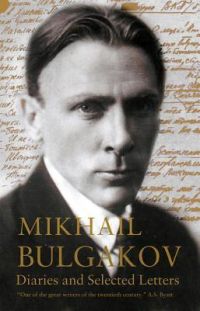
Get Mikhail Bulgakov: Diaries and Selected Letters by Roger Cockrell
Ebook also available.
Available as a paperback (ISBN 9781847493033, 278 pages).
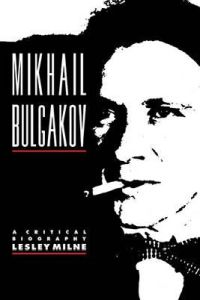
Get Mikhail Bulgakov: A Critical Biography by Lesley Milne
Available as a paperback (ISBN 9780521122467, 340 pages).
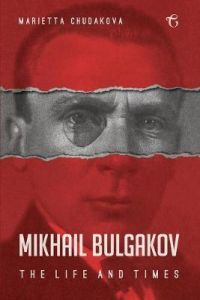
Get Mikhail Bulgakov: The Life and Times by Marietta Chudakova
Ebook and hardcover also available.
Available as a paperback (ISBN 9781784379803, 652 pages).
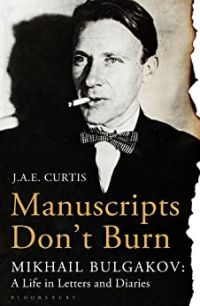
Get Manuscripts Don't Burn: A Life in Letters and Diaries by JAE Curtis
Paperbacks and hardcovers are out of print.
Available as an ebook (ISBN 9781408842010, 336 pages).
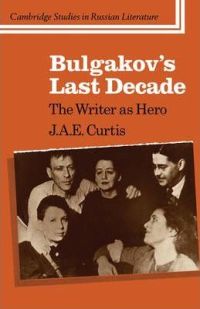
Get Bulgakov's Last Decade by JAE Curtis
Available as a paperback (ISBN 9780521106528, 264 pages).
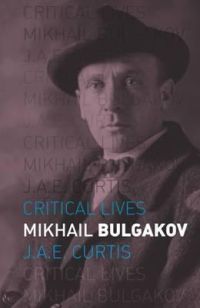
Get Mikhail Bulgakov: Critical Lives by JAE Curtis
Ebook also available.
Available as a paperback (ISBN 9781780237411, 200 pages).
What’s the best The Master and Margarita translation?
As usual, it depends on what you’re looking for. There’s a reason multiple translations exist.
If you want the smoothest, most accessible translation, try the 1967 Glenny translation, but be aware that in some details, it is flawed.
If you want a more accurate, faithful, literal translation and lots and lots of explanatory notes, try the 1997 Pevear & Volokhonsky translation. The 1993 Burgin & O’Connor translation also seems like a good choice.
If you want an unabridged digital audiobook, get the Naxos recording of the Kalperson translation.
If you want a matching set of a bunch of Bulgakov’s writings, get the Alma Classics Aplin translation.
If you’ve already read one of the post-1960s translations of The Master and Margarita, try the 1967 Ginsburg translation, which is much admired, but sadly less complete than all the others.
Already have a favorite? Let us know which one and why in the comments!

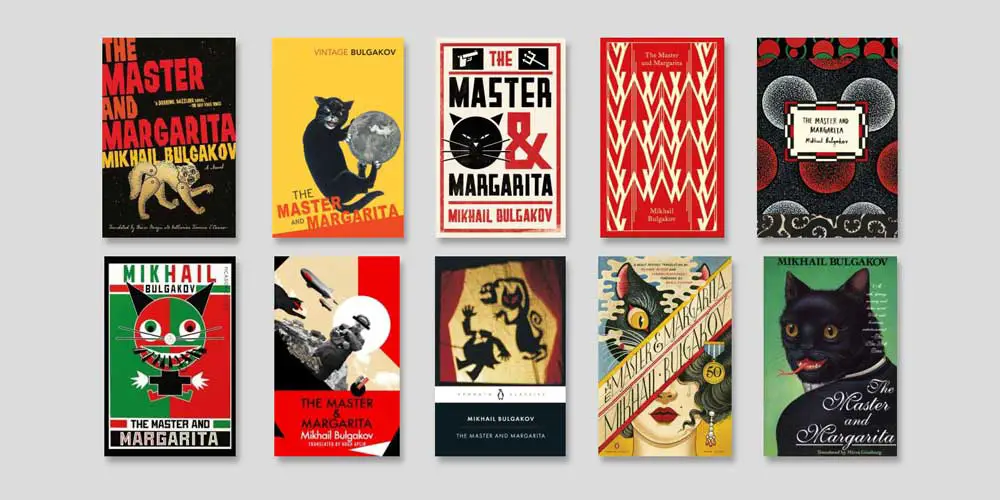
I’ve since picked up the Ginsburg translation, and am happy to report that she uses the much more thoughtful translation “black-skinned man”. I also appreciate that she let me in on a joke, by translating Ivan’s pen name as “Homeless” which is very funny. I know some material is missing from this translation, but, honestly, for these two reasons, I think it’s the best one for me.
As to the previous translation that I read, it was a Kindle edition, which is most likely Burgin & O’Connor.
Can’t figure out if the Macmillan hardcover includes the endnotes of the paperback Burgin.
I prefer translations that don’t use trendy words or anachronisms, like on the first pages “sneakers” and “soda”. I found these choice jarring. So it looks like the Aplin translation is the best in that respect. ?
I came here in search for an indication of whether there’s a translation of Master and Margarita that doesn’t use the word “negro,” as I found it incredibly jarring to read it in my first experience of the book, and I was curious to see if another translation would allow me to focus on the rest of the work, and not a single word choice. I will roll the dice and see if the Ginsburg translation might be an improvement in that regard.
Using Google Books and Archive.org, I did text searches in all the translations except Karpelson and didn’t find the word “negro”. Do you know which translation it was that you read before?
I can tell you that up until the early 1980s the word “negro” was not a racist word and was the respectful term used to refer to people of Afro-Caribbean origin. There was even an anti-racist organization in the USA called “Universal Negro Improvement Association and African Communities League” which still exists today. And just to add more context the great Martin Luther King used this word to refer to himself. I’m old enough to remember when this was the respectful word used to address somebody of Afro-Caribbean origin. Then suddenly out of nowhere in the early 1980s, somebody decided the word was “racist” and people stopped using it. I think people need to think more critically before making assumptions, but sadly today’s education system no longer educates, but rather “indoctrinates”.
Not exactly “suddenly out of nowhere”. The word began to be deprecated in the late 60’s. By the ’80’s the process was complete.
‘I think people need to think more critically before making assumptions, but sadly today’s education system no longer educates, but rather “indoctrinates”.’ — lol Nice irony BTW.
So, what’s the proper, inoffensive word translators should use?
Any suggestion would offend someone.
“Negro” became problematic as it came to be used as a pejorative stereotype, or even a way of using the n-word, without actually using it.
There weren’t too many people of colour in Bulgakov’s Russia. So, what is the author saying in the original language – “chorniy”, “nyegr”, or something else? Any translator must use their skill and judgment to find the best way of conveying the foreign word in a language not native to the author. In what context does the original text use a particular word. Is the important characteristic the color of the skin? “A man with [light, dark, deep] brown skin.” Or is it, maybe, the character’s nationality or country of origin? “An Ethiopian/Somali/African” (etc etc). Or is it used to help evoke the time and place, a time and place where the word was commonplace (say mid-twentieth century USA), in which case, why not “negro”? But if none of these, what would be wrong with “man”?